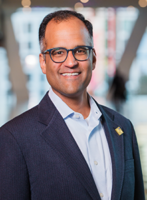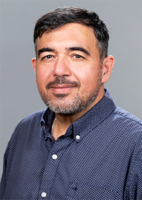Cell and Tissue Engineering

Cell and tissue engineering uses engineering principles to understand and control the behavior of cells and tissues. Our scientists study how cells behave and accomplish their functions in order to later direct cellular activities to perform useful biological tasks--such as destroying tumors, manufacturing vaccines or fending off bacteria.
Tissue engineering and regenerative medicine work toward the same goals at the larger scale of tissues, fluids and organs. They may use stem cells to create custom-grown organ and tissue replacements, or devise strategies to repair or prevent tissue damage from aging or disease.
Research in cell and tissue engineering has real-world impact in areas like:
Aging, cancer, infectious disease, microbiome, and regenerative medicine.

Derfogail Delcassian
For more information, see: https://www.derfogaildelcassian.com/
The development of immunoengineering technologies to direct immune cell function. We build artificial lymph nodes, mRNA vaccines and 3D printed interfaces to study and control immune cell behaviour. These technologies have applications in cancer therapy, inducing transplant tolerance, spaceflight and auto-immune diseases.

Daniel A. Fletcher
For more information, see: https://fletchlab.berkeley.edu/
The Fletcher Lab develops diagnostic technologies and studies mechanical regulation of membrane and cytoskeleton organization in the context of cell motility, signaling, and host-pathogen interactions. We specialize in development of optical microscopy, force microscopy, and microfluidic technologies to understand fundamental organizational principles through both in vitro reconstitution and live cell experiments. Recent work includes investigating the mechano-biochemistry of branched actin network assembly with force microscopy, studying membrane deformation by protein crowding and oligomerization with model membranes, and reconstituting spindle scaling in encapsulated cytoplasmic extracts. The long-term goal of our work is to understand and harness spatial organization for therapeutic applications in cancer and infectious diseases.

Kevin Healy
For more information, see: https://biomaterials.berkeley.edu/
Research in the Healy Lab emphasizes the relationship between materials and the cells or tissues they contact. The research program focuses on the design and synthesis of bioinspired materials that actively direct the fate of mammalian cells, and facilitate regeneration of damaged tissues and organs. Major discoveries from his laboratory have centered on the control of cell fate and tissue formation in contract with materials that are tunable in both their biological content and mechanical properties. Professor Healy also has extensive experience with human stem cell technologies, microphysiological systems, drug delivery systems, and novel bioconjugate therapeutics.

Christopher Hernandez
For more information, see: https://www.hernandezresearch.com/
Dr. Hernandez’s research in biomechanics examines the musculoskeletal system, microscopic organisms and interactions between microbes and materials. Current projects include understanding how the microbiome influences bone and infection of total joint replacements, how bacteria are influenced by mechanical stress and strain, and engineered living materials.

Tony Keaveny
For more information, see: https://bonelab.berkeley.edu/
Biomechanics of cortical and trabecular bone; design of spine prostheses; bone fracture and osteoporosis; tissue engineering of bone.

Sanjay Kumar
For more information, see: https://kumarlab.berkeley.edu/
Our lab seeks to understand and engineer mechanical and other biophysical communication between cells and materials. In addition to investigating fundamental aspects of this problem with a variety of micro/nanoscale technologies, we are especially interested in discovering how this signaling regulates tumor and stem cell biology in the central nervous system. Recent directions have included: (1) Engineering new tissue-mimetic culture platforms for biophysical studies, molecular analysis, and screening; (2) Exploring mechanobiological signaling systems as targets for limiting the invasion of brain tumors and enhancing stem cell neurogenesis; and (3) Creating new biomaterials inspired by cellular structural networks.

Phillip Messersmith
For more information, see: https://bioinspiredmaterials.berkeley.edu/
My laboratory is interested in understanding structure-property relationships in biological materials and in using this information to design biologically inspired materials for use in healthcare. Fundamental studies include single molecule and bulk biophysical studies of biointerfacial and bulk mechanochemical phenomena in biological materials, whereas our applied studies the design and synthesis of novel biomaterials for tissue repair and regeneration.

Mohammad Reza Kaazempur Mofrad
For more information, see: https://biomechanics.berkeley.edu/
Molecular and Multiscale Biomechanics; Bioinformatics and Computational Biology; Statistical Machine Learning; Computational Precision Health; Microbiome; Personalized Medicine

Niren Murthy
For more information, see: https://murthylab.berkeley.edu/
Our laboratory is focused on developing new materials for drug delivery and molecular imaging.

Lisa Pruitt
For more information, see: https://mpg.berkeley.edu/
Characterization of structural evolution in medical grade ultra high molecular weight poliethylene due to sterilization: the implications for total joint replacements.

David Schaffer
For more information, see: http://www.cchem.berkeley.edu/schaffer/
Our research program melds basic biology and applied engineering principles to investigate preclinical and clinical gene and stem cell therapies, i.e. gene replacement and cell replacement approaches to treat human disease.
News About: Cell & Tissue Engineering
Herr wins Weill Neurohub Investigator Award
A research project on “the protein code of brain aging: from molecules to mechanisms,” by Professor Amy Herr has been selected for a Weill Neurohub Investigator Award. The Investigators program funds top faculty to form cross-campus, interdisciplinary teams to explore, create, and test bold new concepts and technologies.
Nature provides the answers
An in-depth look at research by Professor Phil Messersmith, who draws on biology to develop cutting-edge materials for medicine. His lab creates adhesives and therapies designed to work with the human body, offering new ways to repair tissues, heal wounds and treat disease.
Fletcher elected to National Academy of Medicine
Professor Dan Fletcher has been elected to the National Academy of Medicine for his contributions to the mechanistic understanding of biological self-assembly and mechanotransduction, and his work developing mobile phone-based microscopy for remote diagnosis of infectious diseases. Election to the academy is considered one of the highest honors in the fields of health and medicine.
UC Berkeley scientists uncover neural mechanisms behind long-term memory
Researchers from Professor Michael Yartsev’s lab used wireless recording devices to track neural activity in Egyptian fruit bats, revealing new clues to how our long-term memories are formed.
UC Berkeley Awards $200K Venture Grant to HypO2Regen Therapeutics
Professor Phil Messersmith and colleagues have launched HypO2Regen Therapeutics, a startup developing novel, disease-modifying therapeutics for chronic intractable inflammatory diseases, including the first cell-free stem cell treatment that induces true regeneration of damaged tissue. Their first effort takes aim at periodontitis, which affects over 300 million people worldwide.
Yartsev wins Richard Lounsbery Award
Michael Yartsev will receive the 2025 Richard Lounsbery Award from the National Academy of Sciences to recognize his extraordinary scientific achievement in understanding the neural basis of natural behaviors.
Alumnus Di Carlo will lead new UCLA Chan Zuckerberg Initiative cell research project
The Chan Zuckerberg Initiative has allocated a $4 million grant to support collaborative research by UCLA, USC and CalTech that will examine cellular behaviors, many of which play a key role in developing immunity to pathogens and disease. Dino Di Carlo, UCLA professor of bioengineering and UC Berkeley BS and PhD alumnus, will lead the team.
The booming business of discovering your biological age
Professor Irina Conboy and former student Alina Su have founded a new company, Generation Lab, offering an at-home molecular aging test that analyzes a person’s biological age by assessing “biological noise” in their system. The test evaluates an individual’s risk for top health conditions and the pace of aging across 19 systems in the body, which can help physicians see where interventions may be most needed and effective.
Researchers make advances toward more effective IBD therapies
Researchers in Professor Phillip Messersmith’s lab have demonstrated that treatment with DPCA, an enzyme inhibitor molecule shown to trigger regeneration in mammals, can protect against and repair colon damage in a mouse model of colitis. This work suggests that short-term use of this small molecule drug could someday provide a restorative therapy for patients with IBD — and a path to remission.
Old plasma dilution reduces human biological age
New work from Irina Conboy’s lab extends to humans their previous animal studies on age-specific differences in blood plasma, and establishes a novel direct measurement of biological age. Their results continue to demonstrate that aging may be driven by an excess of certain molecules and proteins, and point to potential treatments for age-related conditions.









